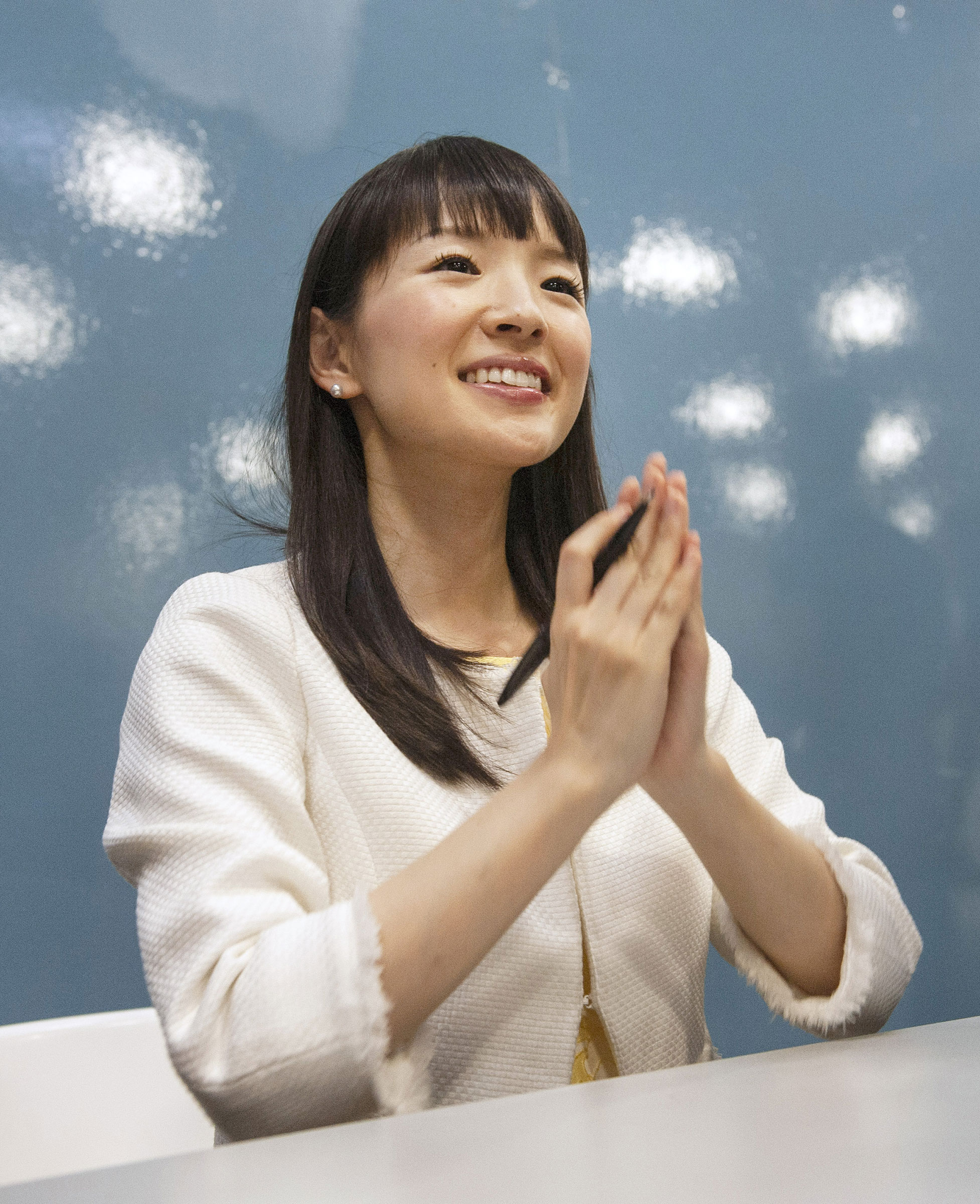
If you’re one of the many people worldwide who are now practicing social distancing by spending all day, every day at home, you might be noticing all the clutter you’d been ignoring. For many of us, our new realities include working in our living spaces, making the division between work and home life all the more blurred. Not only are we adjusting to working in confined spaces, but many of us are learning to share with partners, family members and roommates.
In her new book, Joy at Work: Organizing Your Professional Life, tidying expert Marie Kondo offers her best strategies for creating a productive workspace. Beyond providing tips on how to make the physical space more functional, she, along with her co-author Scott Sonenshein, stresses the importance of decluttering nonphysical items. Kondo spoke to TIME about pivoting that advice to make your home into a space that sparks both joy and productivity. —Annabel Gutterman
What’s the best way to make our living spaces more liveable? In addition to selecting things that you want to keep—things that spark joy—and letting go of things that don’t, consider how you’re storing the items that spark joy for you. I do realize that we’re not able to go donate anything right now, so taking care of how you organize things can really contribute to your overall sense of stability. For instance, you could take this time to go through your drawers and fold all of your clothes in a way that sparks joy for you. The accumulation of these small things can really make a big difference.
Many people now work in their living space. How can we keep those spaces separate? I like to have a ritual, whether it’s meditation or chiming my tuning fork, that allows me to shift gears in my mind and let my body know that I am entering work mode. Another thing you can do: keep all the tools that you use for work on a little tray and store it away so that you only bring them out when you need to. So the transition from work time to private life is as distinct as possible.
What advice would you give people who share their home workspace with someone else? First, set up clear priorities of what’s important to you, whether that’s specific tasks or how you want to spend your time. Then share what you need from each other. It’s something I do with my husband—we take out a sketchbook and write out what our goals are. The act of writing it out helps you visualize what you’re thinking, understand where you have tangled emotions and come to a resolution. It’s very important that we’re aware of family members and partners’ work schedules for the day so we can complement each other, support each other and align our priorities.
What if they’re messy? Put all of your partner’s work tools on a separate tray and put it away. Do what you need to do so that you have an environment in which you can focus.
How can we declutter things that are necessary for work but don’t really spark joy, like emails and paperwork? There are three ways things can spark joy. The first category is things that directly allow us to feel joy. The second is functional joy, things that you use frequently that make your daily work easier. And the third is future joy, things that will contribute to your future plan for your career. For example, invoices themselves may not spark joy for you, but it is what allows you to get payment in the future, so in that sense it sparks joy. If a particular item can be categorized into any of those three, I’d choose to keep them.
What else should we be tidying up? It’s very important that our mind is at peace when we are working. It’s very hard to be effective and efficient when you have a lot of worries or anxieties going through your mind. You can meditate in the morning or even before bed. I like to spray some incense or fragrance in the air, just to help finish each day with positivity and gratitude. At the end of the day, try to focus on and appreciate what you did accomplish rather than what you failed to accomplish.
This article is part of a special series on how the coronavirus is changing our lives, with insights and advice from the TIME 100 community. Want more? Sign up for access to TIME 100 Talks, our virtual event series, featuring live conversations with influential newsmakers.
More Must-Reads From TIME
- The 100 Most Influential People of 2024
- Coco Gauff Is Playing for Herself Now
- Scenes From Pro-Palestinian Encampments Across U.S. Universities
- 6 Compliments That Land Every Time
- If You're Dating Right Now , You're Brave: Column
- The AI That Could Heal a Divided Internet
- Fallout Is a Brilliant Model for the Future of Video Game Adaptations
- Want Weekly Recs on What to Watch, Read, and More? Sign Up for Worth Your Time
Contact us at letters@time.com